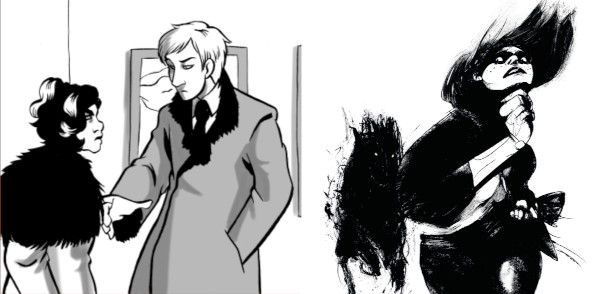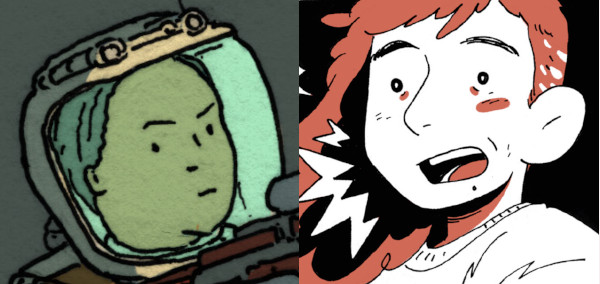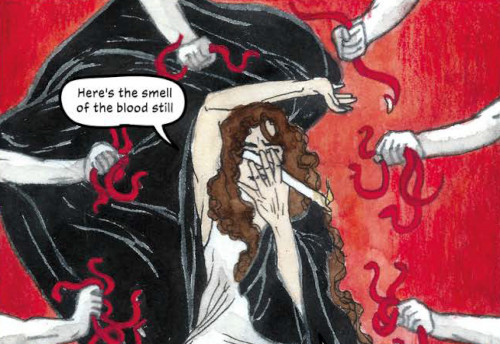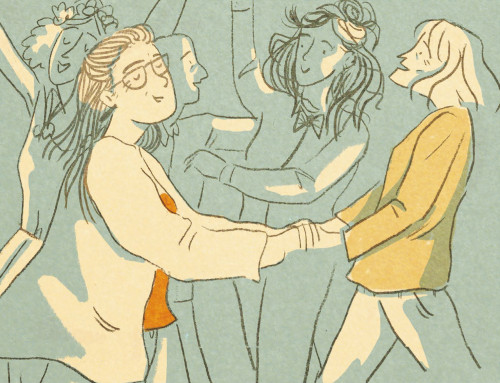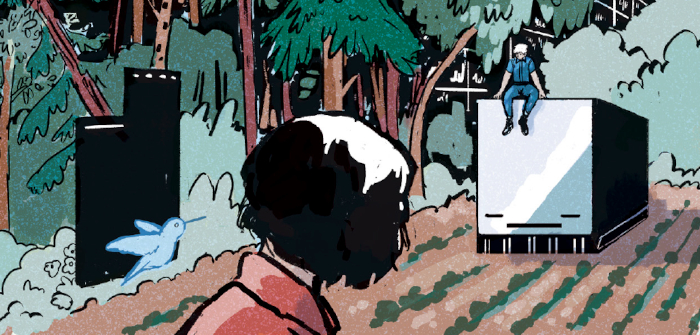
After the (connected) short stories of Safer Places, Kit Anderson‘s new book is a full-on graphic novel called Second Shift (again from Avery Hill) which has gotten some breathlessly positive reviews from writers who give the impression they totally understand it. At Deconstructing Comics, our reviews tend to be more nuanced. What did we think of it? I’m joined by Loyala Marymount University professor Juan Mah y Busch to examine this book, and we’re not afraid to say we found it difficult to understand!
Brought to you by:
Podcast: Play in new window | Download


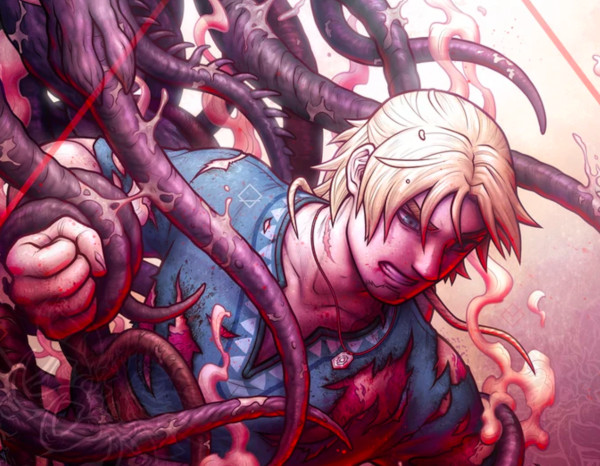 Friend of the show Irene Strychalski, former artist of such Marvel titles as Gwenpool and Silk, has been focused on her original title
Friend of the show Irene Strychalski, former artist of such Marvel titles as Gwenpool and Silk, has been focused on her original title 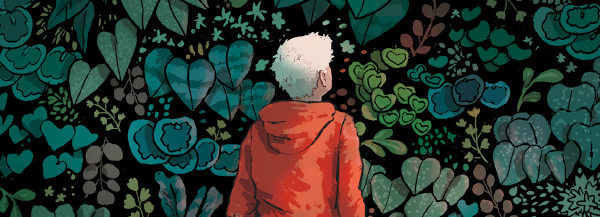 Also, Tim presents a mini-review of Safer Places by
Also, Tim presents a mini-review of Safer Places by 